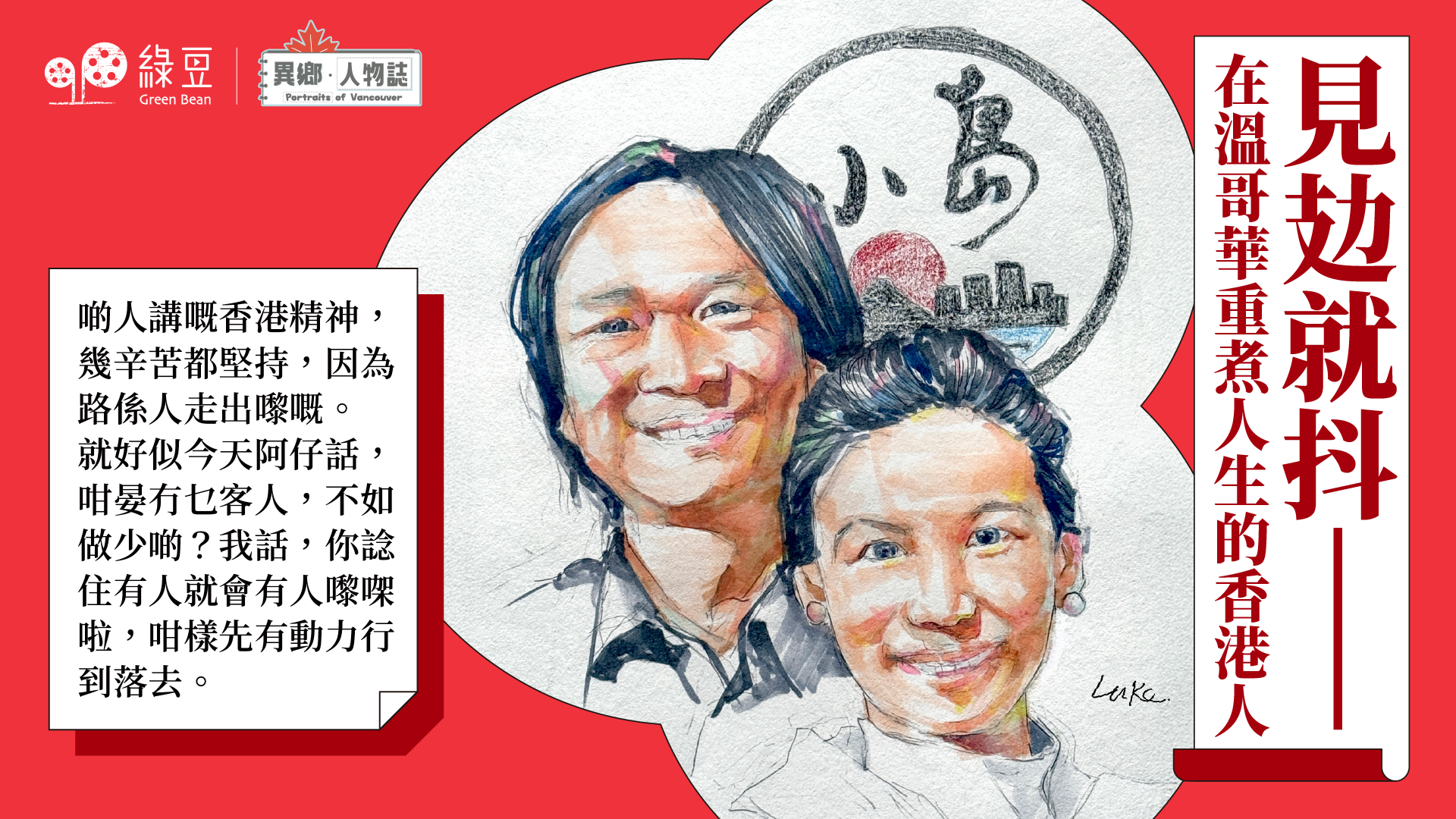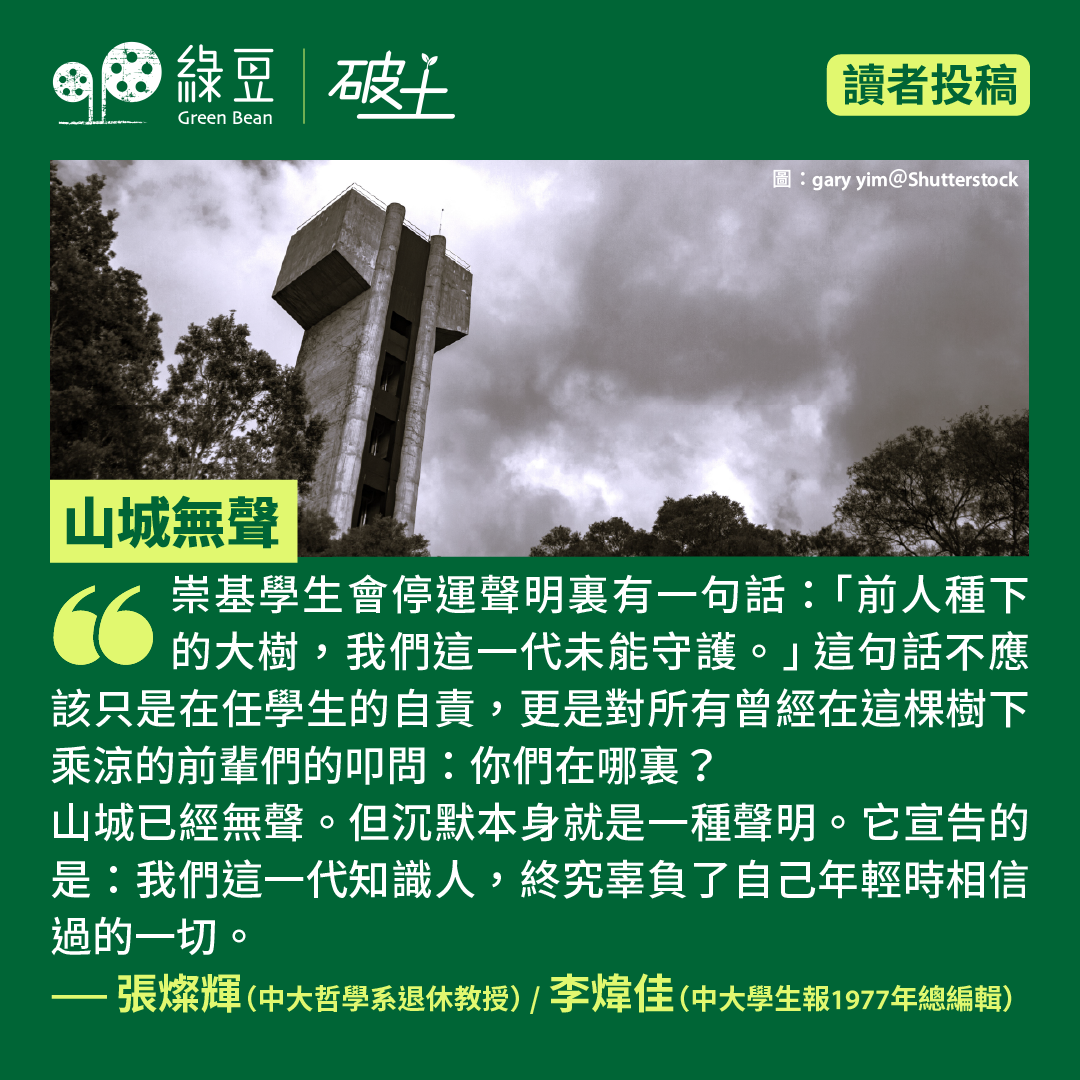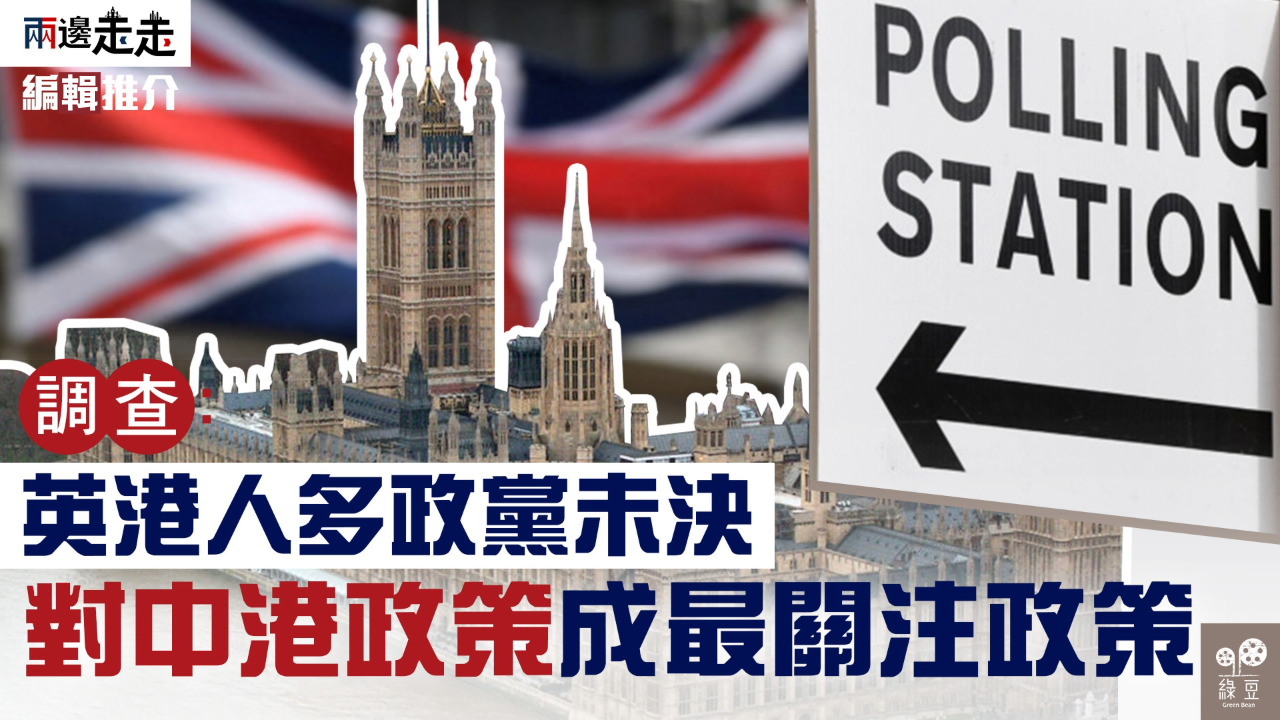Conservatives manifesto: UK will sanction human rights abusers while maintaining BNO scheme
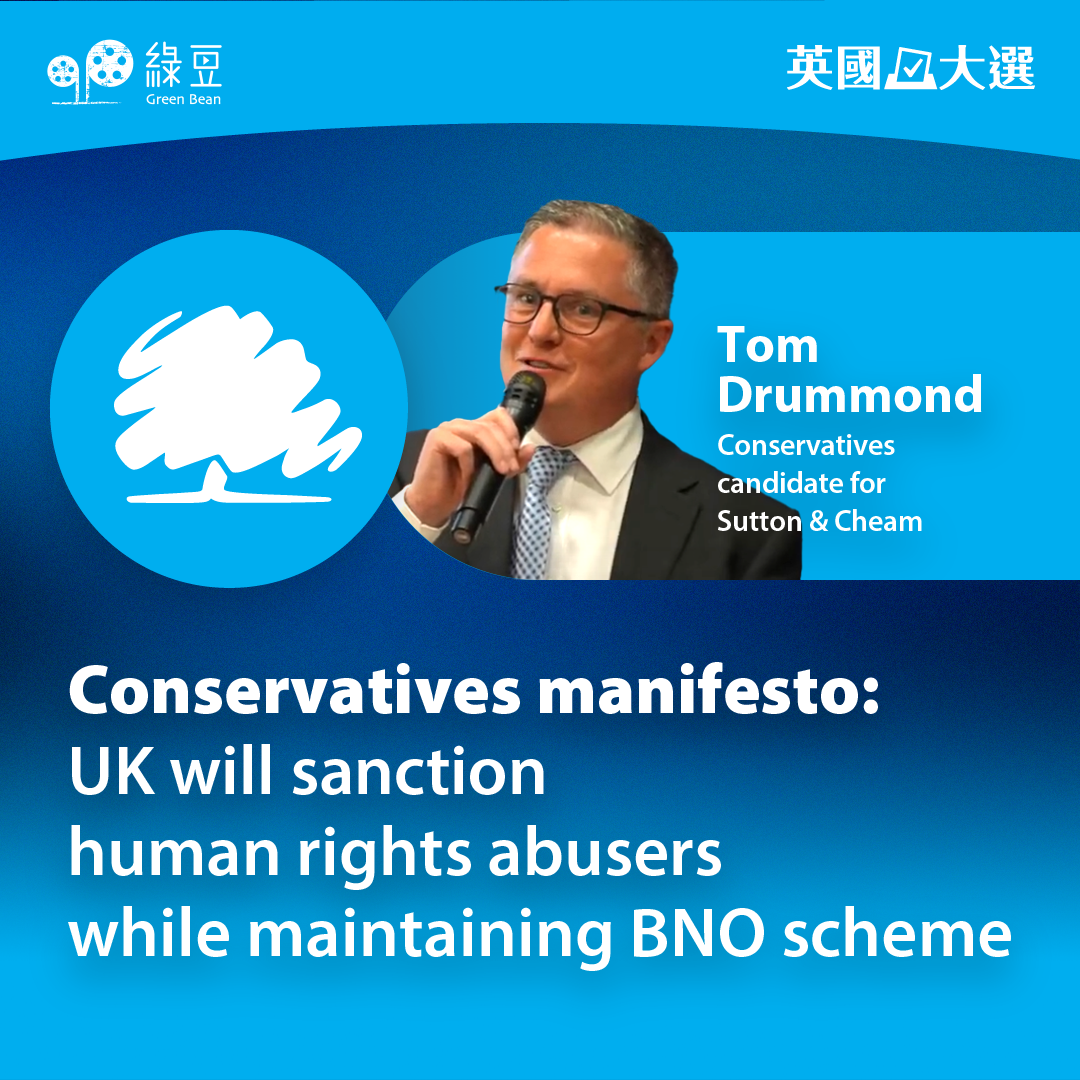
Despite being the incumbent government which has opened the door to UK citizenship for 140,000 holders of British National (Overseas) passports and their families, it is far from clear whether the Conservative Party will gain favour from Hong Kong migrants when the polling stations open for the General Election this week.
In the run up to the 4 July election which saw the Conservatives trailing at least 20 percentage points behind the Labour Party as shown by the latest opinion polls, some observers believe that Hong Kongers’ influence may yet swing a handful of marginal seats such as Warrington South in the Northwest, and Carshalton and Wallington near Sutton, with higher concentration of population from Hong Kong.
On paper, the Conservative Party’s manifesto appears to be more clear cut on some of the issues closest to the hearts of Hong Kong migrants, including its stance over the BNO visa scheme and foreign policy towards China.
In its 80-page policy blueprint, the party mentioned Hong Kong twice, first within the section of Britain’s foreign policy in page 33, then under the party’s plan to control immigration and to target illegal immigrants in page 36.
Amid the growing pressure piled by its opponents against the Conservative government’s failure to halt an influx of immigrants arriving through legal and illegal means, its manifesto is unequivocal in pledging that the BNO visa scheme will be maintained as a policy under a Conservative administration, which will step up support “for refugees fleeing persecution”.
Transnational repression by Beijing and Hong Kong in the UK
But for many Hong Kongers who questioned party candidates in recent election forums held by Hong Kong activists in Reading and Sutton, being able to settle down without fear from what is billed as transnational repression by China is as important as keeping the airport gates open for BNOs and their families to relocate to the UK.
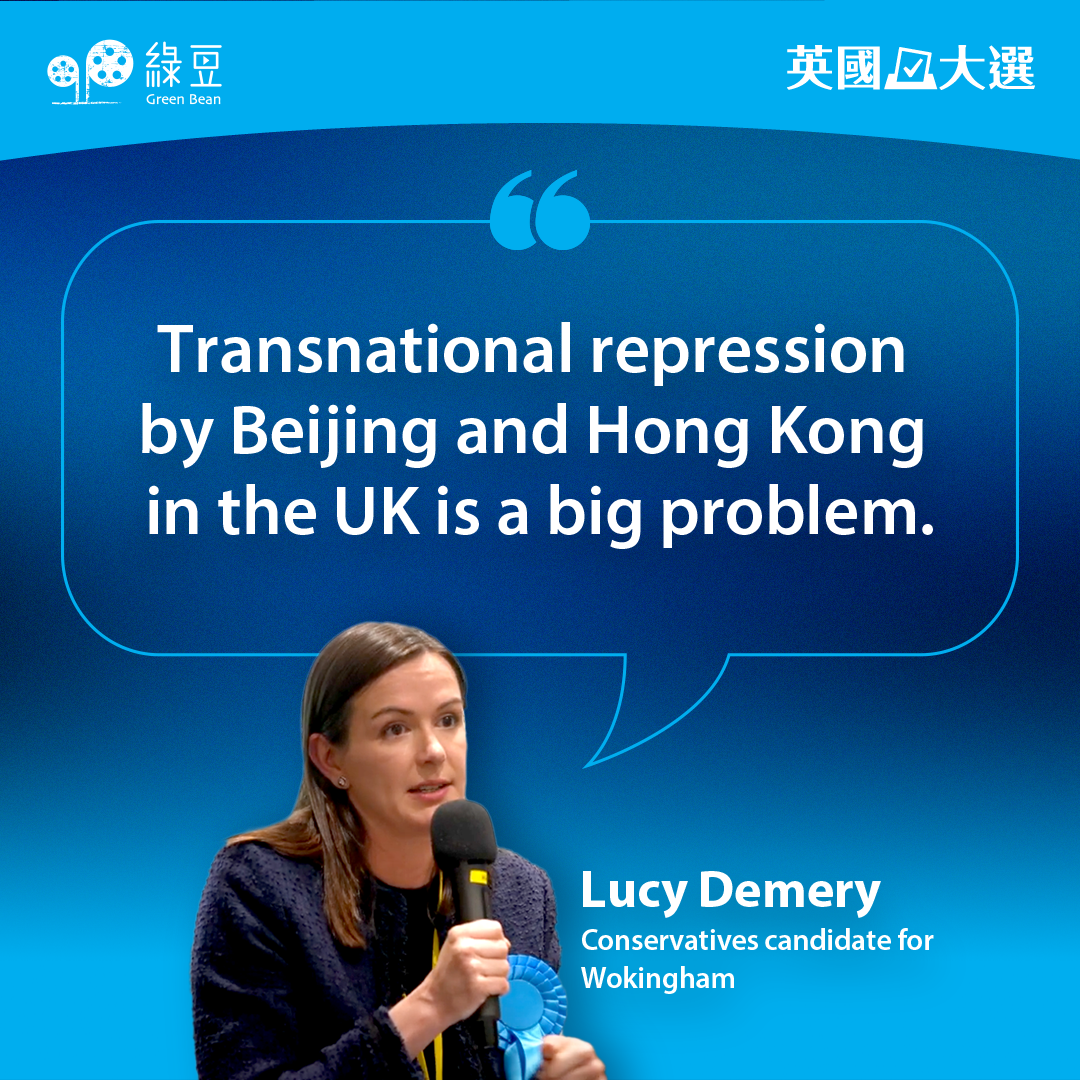
“Transnational repression by Beijing and Hong Kong in the UK is a big problem,” said Lucy Demery, Conservative candidate for Wokingham in Berkshire who told a forum in Reading about her government’s efforts in strengthen UK’s national security legislation against foreign operatives, resulting in recent arrests of British and Hong Kong individuals on alleged spying charges.
“We want to go further, we want to make sure our laws are capable in really cracking down on all of Beijing’s influence activities, its espionage and its surveillance of Hong Kongers in the UK,” said Demery, referring to complaints raised by Hong Kong activists who have allegedly been under surveillance by mainland operatives. “We also need to be more clear-eyed about China’s technological capability, and its ownership of national strategic assets in the UK.”
Potential asset freezes and travel bans
According to a survey of Hong Kong migrants conducted in January by political group Vote for Hong Kong 2024, 55.7% of the 1,220 respondents prioritised foreign policy toward China and Hong Kong as the most important societal issue. It highlighted respondents’ demands that the next government should have “a clear and robust stance towards China”, with some saying they will “definitely vote for a hawkish, anti-CCP candidate”.
The Conservative Party is the only party which clearly pledged in its manifesto to target China by using “asset freezes and travel bans on those involved under our human rights sanctions regimes”.
In its China strategy, the party said it will strengthen national security protections, align and cooperate with international partners, and engage where it is consistent with national interests. “China has disregarded universal human rights and its international commitments, from Tibet and Xinjiang to Hong Kong,” the party said in its manifesto, pledging to raise its grave concerns at the United Nations and other international fora.
On bread and butter issues, the Conservative party tries to appeal to both the Hong Kong communities in line with the general public by its pledges to introduce cuts in national insurance contribution, easier access for first-time home-buyers up the property ladder, and promises to improve public healthcare.
At an election forum in Sutton, a Hong Kong voter complained that BNOs are being treated as an inferior class of British passports where holders must endure the long queues instead of e-gates at border checkpoints. Tom Drummond, the Conservatives’ candidate for Sutton and Cheam, was positive that the same convenience should be afforded to BNO holders. However, he was cautious about the government’s “fiscal responsibilities” when asked whether children of BNOs should be charged home student tuition fees for university studies.
Other candidates in the Wokingham constituency are: Merv Boniface (Green); Monica Hamidi (Labour); Clive Jones (Liberal Democrat); and Colin Wright (Reform UK).
Other Candidates in Sutton and Cheam include: Hamilton Action-Man Kingsley (Independent); Aasha Anam (Green); Ryan Powell (Reform UK); Chrishni Reshekaron (Labour); Luke Taylor (Liberal Democrat).

